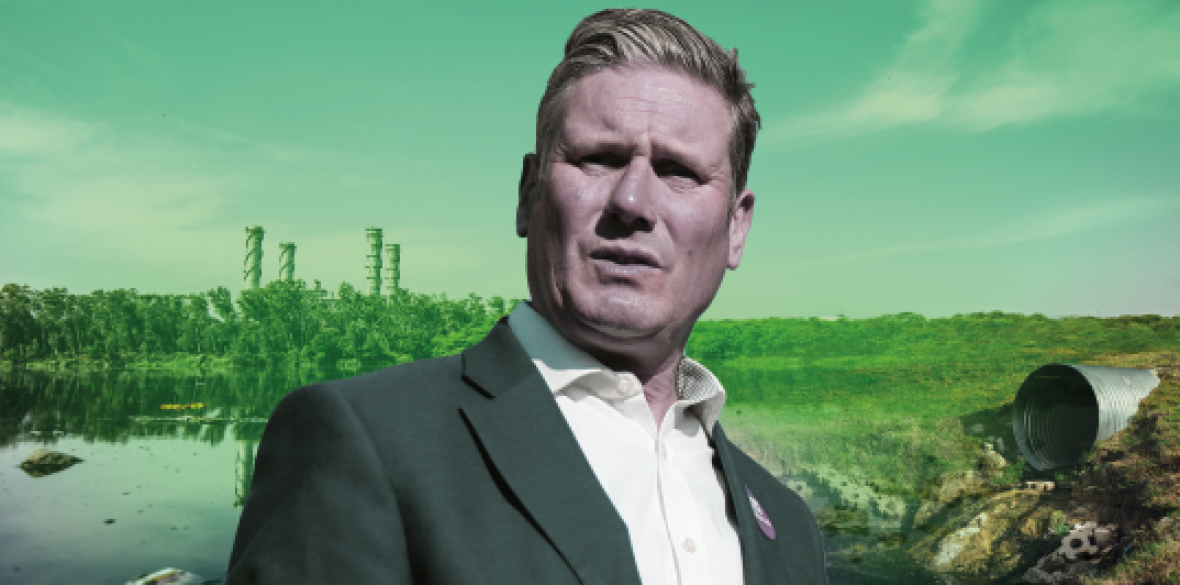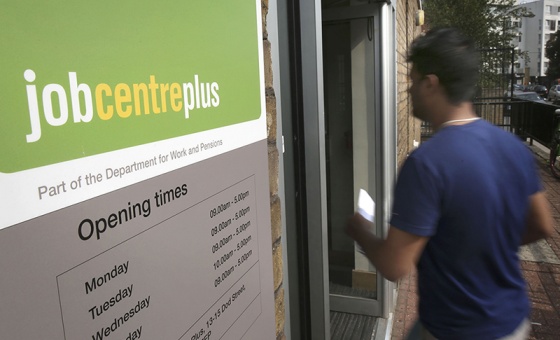This is the last article you can read this month
You can read more article this month
You can read more articles this month
Sorry your limit is up for this month
Reset on:
Please help support the Morning Star by subscribing here
THE private water companies are pumping filth into the rivers and the sea and pumping money out of the system into their owners’ pockets, via dividends and artificial debts.
So, it’s the perfect time for Labour to back away from the popular policy of water renationalisation.
It looks very like Labour is abandoning water nationalisation, but it’s hard to be sure. Because the current Labour leadership doesn’t often take clear stands on policy.
Just two years ago, Labour MPs stood on a manifesto that said: “We will put people and planet before profit by bringing our energy and water systems into democratic public ownership. In public hands, energy and water will be treated as rights rather than commodities, with any surplus reinvested or used to reduce bills. Communities themselves will decide, because utilities won’t be run from Whitehall but by service-users and workers.”
It’s a good policy because it gives the reason for public ownership and promises a democratic, rather than bureaucratic, approach.
While Labour lost the election, water renationalisation actually polls more popular than the party does itself — notably getting support from supposed “socially conservative,” “red wall” voters Starmer claims to be chasing.
The case for renationalising water has become stronger since then. In July, Southern Water was fined £90m for illegally pumping filth into the sea and rivers. The regulator said it was fined because of “very serious widespread criminality” at the firm. The pollution was from untreated “overflows” at sewage stations.
It pumped out the filth because it would not spend the cash it had on repairs and were dishonest with regulators.
There is now a wide-ranging criminal investigation of all the water firms to see if they are also illegally and dishonestly polluting in the same way.
So what is Labour saying? Shadow water minister Olivia Blake responded to the Southern Water criminal pollution case with an article calling for “bold action” and complaining: “The government’s response typifies the approach they take to everything — heavy on rhetoric but light on action.”
So what did Blake say Labour should do? Unfortunately, her boldness turned to timidity. She said: “To ensure decisions are based on what’s good for people and planet, not profits, we’ll toughen up laws on polluting by reviewing legislation on enforcement and sanctions, introducing penalties for under-reporting and we’ll look at the feasibility of making prosecution for polluters the default when there’s a clear evidence base and when it’s in the public interest”
So even though Blake argued “water should be run in the best interests of the environment and consumers, not shareholders,” she is only talking, in a dull technocratic way, about regulation — not nationalisation. Her proposal would in fact leave water in the hands of shareholders.
Labour’s website has had no mention of public ownership of water since 2019.
Another sign Labour is dropping the plan is that Starmer has brought opponents of public ownership into the shadow cabinet.
Pat McFadden is at the Treasury; straight after the election he claimed proposed nationalisations “alarmed voters” and must be dropped. Starmer recently made Jonathan Reynolds shadow business secretary. Post-election, Reynolds argued “there are strong arguments that the current structure of the water industry works poorly for bill payers” but said Labour’s nationalisation plans would have caused “a collapse in international confidence and inward investment.”
Starmer also brought Gareth Thomas into the shadow cabinet. In February 2020 Thomas put an article on his website arguing that “Labour should drop water and energy nationalisation.” Thomas accepted that “ownership matters” because “both energy and water are to varying degrees private monopolies, so poor regulation has not surprisingly led to higher prices, insufficient investment and excessive profit taking.”
However, instead of nationalisation Thomas said Labour should go for “tougher regulation” with water firms “required to put a number of consumers and staff on their boards.” This would lead to some form of mutualisation at some unspecified point in the future as “over time, working with the existing owners, we should convert water companies into mutuals, still in the private sector but owned by the public and employees.”
I think we are odds-on that Labour will suggest a mix of regulation to try to stop profit squeezing, with workers or customer representatives on the board — and pretend this counts for “public ownership.”
But it doesn’t. I think Reynolds gave a more honest explanation of why Labour is backing off from public ownership: it isn’t because nationalisation is unpopular with voters (it’s actually popular) — it is because it is unpopular with the CBI, the banks and the newspaper owners.
There is another reason and perhaps the saddest one of all.
At the end of November the Environment Agency announced that Thames Water had been “fined £4 million after 30-hour waterfall of sewage discharge.” The agency pointed out that “Thames Water has now accrued £32.4m in fines since 2017 for 11 cases of water pollution.”
Thames Water had been paying big dividends at the same time as it had been fined. It was fined £20m in 2017 for sewage leaks — at the time a record fine — but it also paid £82m to shareholders in that financial year.
If you look at Thames Water’s annual reports, you can see that since 2014 — in the period it behaved so badly — former Labour minister Ian Pearson has had a seat on the board.
Pearson was a New Labour minister from 2001-10, including stints as environment minister. Now he gets £70k a year for a part-time job at Thames Water.
Thames Water was seen as particularly bad for squeezing out cash to investors when it was owned by Australian bank Macquarie, from 2006 to 2016. Macquarie employed another former New Labour minister, Gus MacDonald, as its “European adviser.”
Dropping nationalisation means getting back the “confidence” of big business. And so also means getting back the chance these firms might give leading Labour politicians a job one day.












